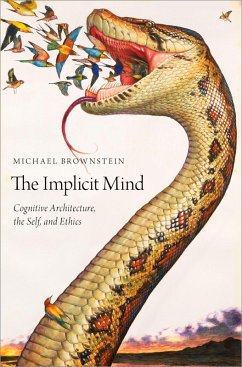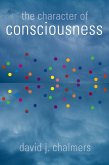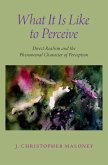Heroes are often admired for their ability to act without having "one thought too many," as Bernard Williams put it. Likewise, the unhesitating decisions of masterful athletes and artists are part of their fascination. Examples like these make clear that spontaneity can represent an ideal. However, recent literature in empirical psychology has shown how vulnerable our spontaneous inclinations can be to bias, shortsightedness, and irrationality. How can we make sense of these different roles that spontaneity plays in our lives? The central contention of this book is that understanding these two faces of spontaneity-its virtues and its vices-requires understanding the "implicit mind." In turn, understanding the implicit mind requires considering three sets of questions. The first set focuses on the architecture of the implicit mind itself. What kinds of mental states make up the implicit mind? Are both "virtue" and "vice" cases of spontaneity products of one and the same mental system? What kind of cognitive structure do these states have, if so? The second set of questions focuses on the relationship between the implicit mind and the self. How should we relate to our spontaneous inclinations and dispositions? Are they "ours," in the sense that they reflect on our character or identity? Are we responsible for them? The third set focuses on the ethics of spontaneity. What can research on self-regulation teach us about how to improve the ethics of our implicit minds? How can we enjoy the virtues of spontaneity without succumbing to its vices? Bringing together several streams of philosophical and psychological research, The Implicit Mind is the first book to offer a philosophical account of implicit attitudes.
Dieser Download kann aus rechtlichen Gründen nur mit Rechnungsadresse in A, B, BG, CY, CZ, D, DK, EW, E, FIN, F, GR, HR, H, IRL, I, LT, L, LR, M, NL, PL, P, R, S, SLO, SK ausgeliefert werden.









